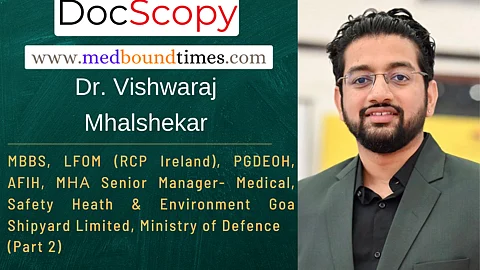Vithya Manoharan: Now we know that having a work-life balance is crucial so, we are curious to know how you strike a balance between your responsibilities, your passion for research and academia, and also your personal life?
Dr. Vishwaraj Mhalshekar: Work-life balance is very important. It's having an inclusive life. Time management plays a vital role in this. You have to know how to celebrate your small wins and also know how to embrace the failures that come your way.
Vithya Manoharan: As a doctor, you might come across a lot of incidents or memorable cases. So, what was that one incident that left a lasting impact on your mind?
Dr. Vishwaraj Mhalshekar: Well, I had many such moments which have left a lasting impact. But the latest one was to be honored with the Best Young Doctor Award in the country. It keeps me very much motivated to do much more. I realized that this is not where I have to settle, but this is where the journey begins.
Vithya Manoharan: Implementing something crucial. We can preach a lot, but still, people may never pay any attention to it. So what do you do as an approach for the implementation of occupational health programs in organizations?
Dr. Vishwaraj Mhalshekar: Well, I am very fortunate that in all the organizations I've worked in, I had a good personal rapport with the top management, and it is very important to maintain that.
I firmly believe that it reflects on your interpersonal relationships and what you share with others. Even if you've never met someone or seen them, how you interact can leave a lasting impression and make a long-term impact.
I always strive to gain as much knowledge as possible in my field of work. When people see that you know your subject well, they develop trust and faith in you. Once there is trust, there is a willingness to support you. My management supported me because they trusted me with the responsibility and allowed me to run programs for the well-being of the workforce. It's important to convey to management that these initiatives make sense from a business point of view. We all know that health is wealth, and explaining how health transforms into wealth, improving productivity, reducing sickness absenteeism, and enhancing employee well-being and motivation are key points that I emphasize while presenting these programs to the management. This approach has been successful in implementing these initiatives until now.


